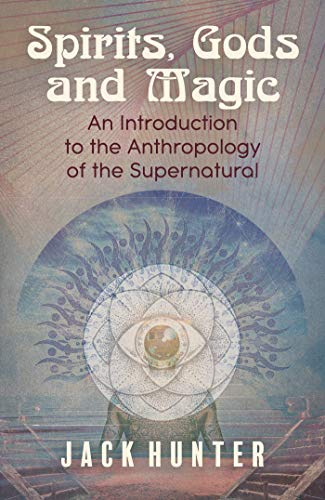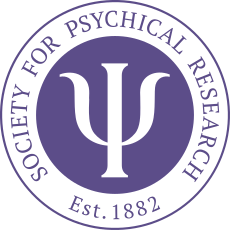
Reviewed by Sarah Porch-Lee.
For those looking to delve into the world of anthropology and the supernatural, Jack Hunter’s Spirits, Gods, and Magic: An Introduction to the Anthropology of the Supernatural is a great place to begin. As an author, Hunter is well informed to write about the main themes represented in this book. He founded Paranthropology: Journal of Anthropological Approaches to the Paranormal (not currently publishing) and was its editor. Currently, he is associated with the Alister Hardy Religious Experience Research Centre, the Sophia Centre, and the Parapsychology Foundation and has written and edited several books on religion and the supernatural. In fact, this book is a second edition of his work published in 2012. Hunter states his intention with this edition is not only to provide an introduction to the realm of the anthropology of the supernatural, but for it also to encourage additional research into the field. This review intends to highlight the structure of Hunter’s book and analyze the major themes he presented throughout it.
Spirits, Gods, and Magic is neatly divided into seven concise chapters; a foreword by anthropologist Fiona Bowie and an afterword by parapsychologist David Luke bookend Hunter’s chapters. The book’s introduction gives a brief account of the field of anthropology and a short history of the word “supernatural”, brilliantly drawing its connection to one of the world’s most common religions, Christianity. In this section, Hunter also clarifies his usage of the terms “supernatural” and “paranormal.” He gives the Oxford English Dictionary’s definition for the supernatural as, “a manifestation or event attributed to some force beyond scientific understanding or the laws of nature” (although Hunter states in this book he uses the term “supernatural” in a general fashion to include such things as ghosts, aliens, haunted houses, magic, and religion) (p. xiv - xv). He goes on to define the “‘paranormal’… as referring to events that are considered to be beyond the scope of current scientific understanding” (p. xv). Hunter then launches into his chapter work by more fully defining “religion”, itself, and moving into a brief discussion of the various theories existing on the origin of religion. While perhaps more academic than a general-interest reader may have expected, this section successfully connects the supernatural to religious anthropology and shows the reader that “the supernatural” can be taken seriously within academia.
The middle chapters of Spirits, Gods, and Magic offer discussions of the supernatural’s heaviest hitters. The second chapter entitled, “Ghosts, Spirits, Gods and Demons,” covers a myriad of ways in which a person may experience a supernatural being. These also include the ever increasing alien abduction stories, as well as Virgin Mary visions. Hunter then moves on to cover spirit possession and shamanistic practices, as well as a description of altered states of consciousness (“ASC”). Here, Hunter discusses that ASC are often connected to specific religious experiences that can be considered supernatural (he gives examples of the Brazilian Candomblé spirit mediums and Sufi Islamic whirling dervishes). Hunter even brings ASC close to home as he explains they can occur during dream states (anyone could have a dream experience quite different from the confines of everyday reality). Next, a chapter on “Magic and Witchcraft” highlights ritualistic supernatural activities. This section shows that cultures throughout the world engage with magical ritual and witchcraft.
In the book’s final chapters, Hunter returns to an academic discussion by explaining how research practices such as ethnography and psychical research are connected to the supernatural. He does this by recounting several of the most fascinating and famous ethnographical accounts of supernatural experiences related by researchers (such as E.B. Tylor’s work with Victorian Spiritualism, Edith Turner’s involvement in the Ihamba healing ceremony and Bruce Grindal’s vision of a dancing corpse in Ghana). The reader will come away from this section understanding that the ethnography process is valuable because it preserves events for posterity and conveys unique experiences to those who might not otherwise have ever learned of these events. Hunter then launches into a description of parapsychology, which he credits as having researched the paranormal world for over one hundred years. Ultimately, Spirits, Gods and Magic wraps up by bringing the discussion back around to anthropology and its ability to appropriately connect with the paranormal. In the last chapter Hunter takes an opportunity to more fully introduce the field of paranthropology (the anthropology of the paranormal). The key to paranthropology’s value is that it allows for anything to be possible and tries to avoid reductionism of experiences that lie outside Western norms.
Several themes became evident throughout Spirits, Gods and Magic. First, as a majority of Hunter’s readers are likely located in the West and familiar with Christianity, he weaves Christian topics throughout the book. This effectively shows that “the supernatural” is not relegated to ghost hunting or “other” distant cultures. For example, the supernatural is represented in the Bible through angels and demons. Even the word “magic” is shown to originate from the Magi group who was interested in the birth of Jesus and is commonly represented in the re-telling of the Christmas Nativity story. While Hunter’s readers may not identify as Christian, the use of familiar Christian topics successfully helps to place and contextualize other supernatural themes discussed in the book, so that the reader may have a fresh, but comfortable outlook on more unfamiliar topics discussed later.
This brings us to the second major theme in the book: that supernatural events occur across cultures, in different ways. This is an oversimplification, though. Hunter’s point is anomalous experiences occur throughout the world; yet, according to that culture the experience may not be anomalous (it is just anomalous to another culture looking in on it). Hunter (p. xv) makes his point succinctly in this statement,
In thinking about the supernatural beliefs of other peoples around the world, however, we need to be wary of the fact that within different cultural settings the category of the supernatural, as we understand it, does not necessarily exist. Spirits, gods, magic and witchcraft may be thought of as just as much a part of the natural worlds as the trees, rocks, rivers and mountains ...
Yet these unique cultural experiences are not necessarily limited to any one group of people or location. Hunter shows that anyone may be able to experience supernatural activity (further illustrated in the above referenced ethnographical accounts of Westerners who participated in other cultures’ so-called supernatural rituals).
The final theme I take from Spirits, Gods and Magic is Hunter’s argument for a thoughtful inter-disciplinary approach to thinking about the supernatural and paranormal. He accomplishes this argument by connecting the fields of psychology, parapsychology, and anthropology to supernatural research. The worlds of the supernatural and paranormal touch many different aspects of the human experience, therefore, it seems appropriate that a multi-disciplinary approach would be fruitful. He also encourages the reader to attempt a cross-cultural understanding of the supernatural, as well. Attempting a cross-cultural mindset will help one avoid reductionism (reducing experience to fit one’s version of reality). Ultimately, Hunter’s goal is to spark interest in the supernatural so that the reader will be encouraged to look into the supernatural more, and he does so while teaching a quick-start guide to complicated ideas like cross-cultural mindsets and inter-disciplinary approaches to academic topics. While general-interest readers may find this a bit overwhelming, it is incredibly relevant to students of paranthropology who are just beginning their research.
In the opening of this book, Hunter (p. ix) states, “…this book should be treated as an introduction to the anthropology of the supernatural – as a pointer for further reading and exploration.” Spirits, Gods and Magic accomplishes this goal and then some. Supernatural and paranormal events are naturally interesting to most readers, and this book offers plenty of examples to keep things exciting, while still providing a grounded, academic core for those seeking to learn about starting paranthropology research.

